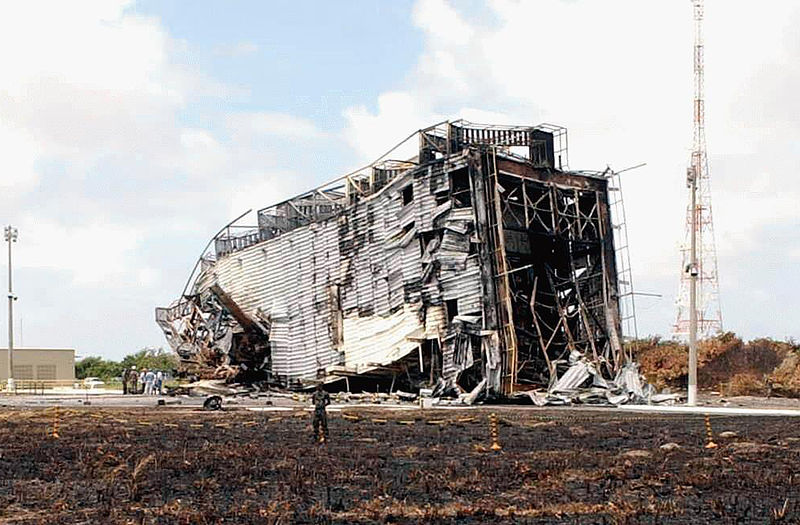Alcantara accident AEB, CC BY 3.0 BR, via Wikimedia Commons
space
Technology
/ Brazil
sad birthday
18 years ago, a rocket explosion at Alcântara Base left 21 dead
By: Rafael Ramos
On: 8/24/2021

wreckage from the Alcantara accident
Agência Brasil, CC BY 3.0, via Wikimedia Commons
On August 22, the explosion of the VLS-1 V03 rocket at the Alcântara Launch Center completed 18 years. On that day in 2003, preparations for the launch of the third prototype Satellite Launch Vehicle ended in a fatal accident that claimed the lives of 21 people. All victims were from the Space Technical Center (CTA) of São José dos Campos (SP).
The fire that caused the explosion was caused by the accidental ignition of one of the four engines of the rocket, as reported by José Viegas, Minister of Defense at the time.
Viewed by four surveillance cameras, the fatality occurred three days ahead of schedule for launch. The mission aimed to place INPE's SATEC meteorological satellites and UNOSAT, from the University of Northern Paraná, in circular equatorial orbit.
A day before the event, suspicions of launch sabotage emerged: “It is a mistake to think that the operation that prepares the launch of yet another VLS-type rocket in Alcântara is limited to the movement of specialists in space technological paraphernalia. In parallel, and with equal intensity, another operation is underway, this one led by the intelligence sector of the Brazilian Space Program and intended to prevent against unlikely, but not impossible, sabotage actions.” It was read in an editorial owned by the president of the Senate, José Sarney, published in Jornal Pequeno.
Shortly thereafter, in the September 3, 2003 issue, Carta Capital magazine published a text of similar content, saying that cutbacks and staff reductions were serious risks.
Several rumors circulated about it at the time. The possibility of terrorism or sabotage was considered, especially by the US, which supposedly caused the accident so that other countries were discouraged from continuing space exploration, since the North Americans dominate this area, after the end of the USSR.
However, the Alcântara Launch Center continued with its missions, and in 2010 it successfully placed the VSB-30 rocket into orbit to carry out microgravity tests. The rocket managed to return safely to Earth and the mission was successful. In 2014, Brazil's first liquid-propelled rocket was successfully launched.



 Rafael Ramos
Rafael Ramos
Aviation enthusiast from an early age, he had his first contacts with the area developing that good old habit of spending dozens of hours in front of the screens of Micrsoft Flight Simulator and other simulators. With a solid background in various technological areas, including engineering and chemistry, Rafael has rejoined aviation as editor and author of articles and materials on our portal, providing invaluable help to the dynamics and expansion of the website and the aeronautical community, bringing us the news and updates so indispensable for us to remain current in our area of operation.
   
|

|